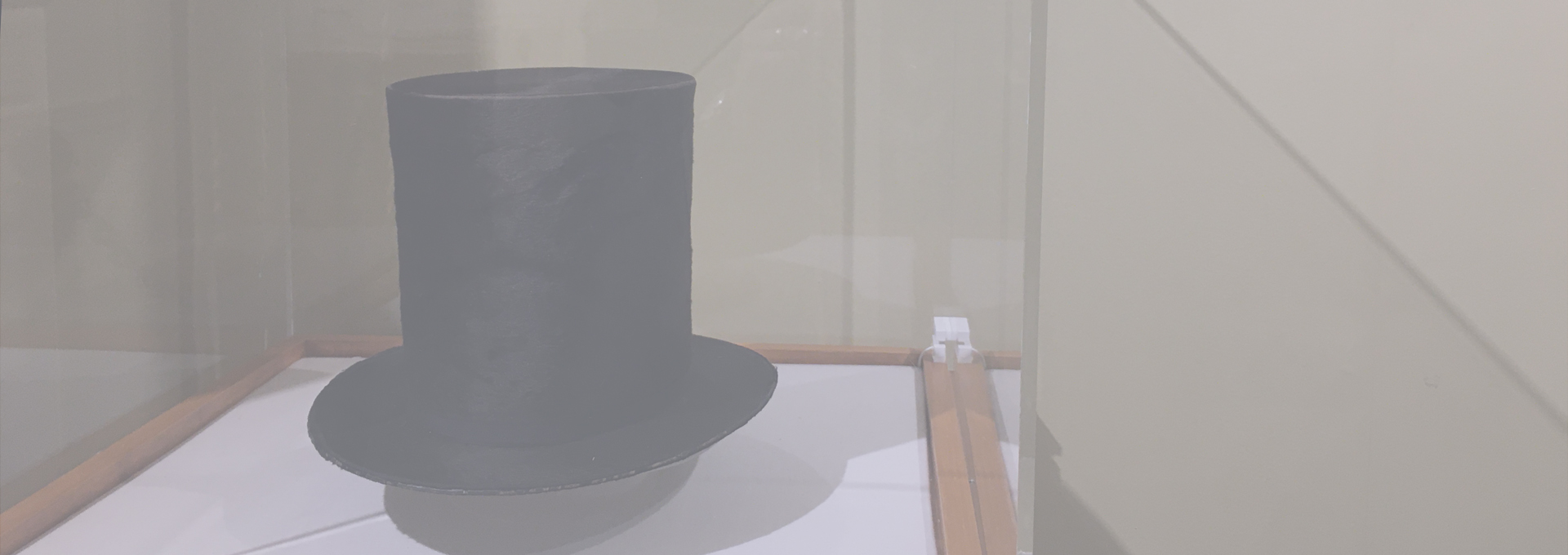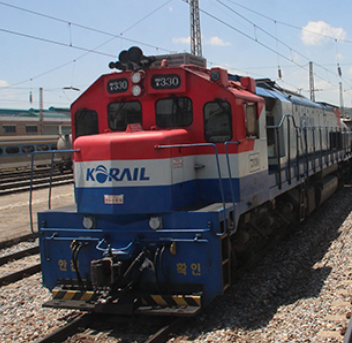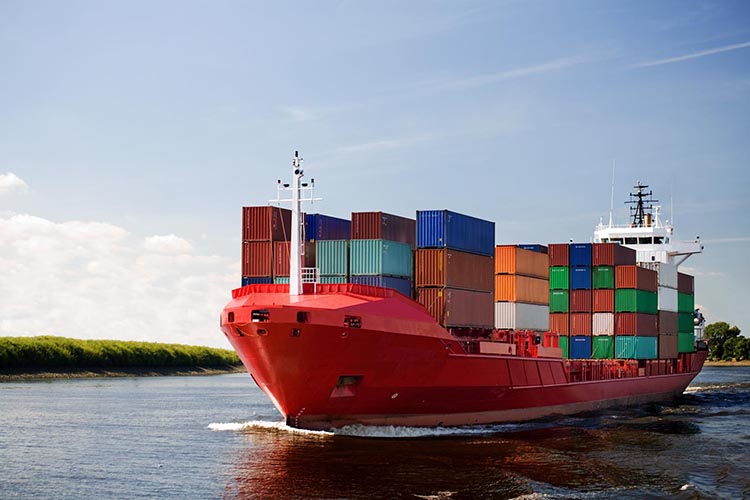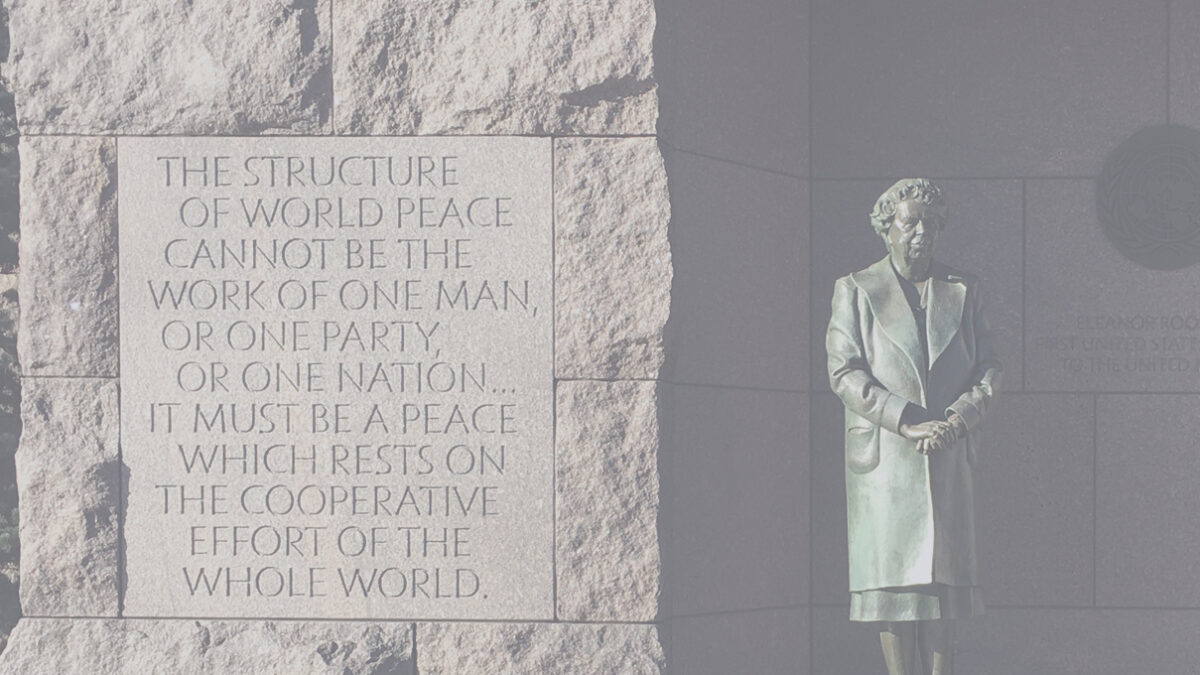
FTZ’ine April 2021
March 31, 2021
FTZ’ine June 2021
June 2, 2021Lots Of Trade Last Month, Trade Policy Not So Much
New USTR Catherine Tai used her first official speech last month to discuss . . . climate change, and has just been assigned the task of reviewing intellectual property rules that restrict wider manufacture of vaccines developed in the United States.
That is a reflection of the lack of policy activity in your Nation’s Capital last month with respect to the trade issues that affect the foreign-trade zone community.
The US and China continue to trade barbs, and a lot of merchandise, and appear to be too distracted quelling the pandemic and growing their respective economies to address their differences anytime soon.
The backlog at the Suez Canal cleared in 5 days, faster than the FTZ’ine expected, but shippers must still consider the impact future canal blockages might have on their supply chains.
The Brexit deal between the EU and UK achieved final ratification by both sides, but tough implementation issues remain to be resolved.
Port congestion on the west coast has improved slightly, but mainly by moving part of the backlog northward to ports like Oakland. At least a dispute with the longshoremen won’t become a disruptive factor; the latest contract proposal looks to be headed for ratification by the ILWU rank and file later this month, well before peak season.

Top Story: China Relations A Dark Cloud on Otherwise Rosy Economic Outlook
The Federal Reserve now expects U.S. gross domestic product to increase 6.5% in 2021. That is sharply higher than the 4.2% forecast it made back in December of 2020. Consumer demand is once again leading the economy out of recession. The burst in spending has led to increased imports from China, but without any improvement in relations with the U.S.
The U.S. Trade Representative's "Special 301" report released last month said China has fallen short on its commitments to protect American intellectual property in the Phase 1 trade deal.
The USTR report said that China amended its Patent Law, Copyright Law and Criminal Law last year and did draft several regulatory measures on IP.
"However, these steps toward reform require effective implementation and fall short of the full range of fundamental changes needed to improve the IP landscape in China," USTR said.
The commitments were part of the deal with Beijing that included regulatory changes on agricultural biotechnology and commitments to purchase at least $200 billion in U.S. goods over two years.
The USTR report also noted that Chinese officials have made statements that intellectual property rights should be linked to national security and the need to develop "indigenous" innovation.
"Such statements and measures raise concerns about requiring and pressuring technology transfer and about whether IP protection and enforcement will apply fairly to foreign rights holders in China," USTR said.
China was kept on a "priority watch list" for intellectual property rights enforcement problems, along with Argentina, Chile, India, Indonesia, Russia, Saudi Arabia, Ukraine and Venezuela.
U.S. Trade Representative Katherine Tai told senators that her office has not yet scheduled a required high-level consultation with China, but would work to hold China to its Phase 1 commitments.
Tech Tip
What’s up with the e214 lately? If you have been one of the unlucky ones that have gotten multiple rejections on recent e214 filings, you already know there have been quite a few hiccups with ACE programming for FTZs this past week. And, even if you have not gotten the rejects, you’ve seen all of the CSMS messages about error correction and FTZ numbering.
It started with the final release of the FTZ ID Format update. On April 24, 2021, CBP deployed the Foreign Trade Zone (FTZ) ID Format Expansion. This necessitated an update in both the ACE Entry Summary Create/Update and Duty Deferral Create/Update CATAIR chapters. Check with your FTZ software company and your broker if you file with one to make sure they made the corresponding updates before your next zone week ends.
Now that the 7501-06 and 7501-08 filings have been updated, after the e214 was updated some time ago, the FTZ Board can begin issuing the expanded FTZ IDs where needed.
When this change went into production, however, some odd things started happening with e214s filed the following Monday. Zones started getting invalid errors that the FIRMS was not bonded, or the reported port did not match the port on file with the FIRMS. It took several days to get the errors resolved, and CBP headquarters had to get involved to ensure timely recordkeeping of the daily receipts.
It is not clear why a change in the entry summary caused errors with the e214, but it is a good reminder that operators need to be mindful any time anything related to FTZ reporting in ACE is being updated.
This is a good time to check and make sure you are signed up to receive CSMS messages, so you can stay on top of the latest updates to ACE and other CBP announcements. Go here to search prior messages and scroll to the bottom to sign up to receive the messages in your inbox.
If you have questions about this new zone ID or filing e214s, send them to us at Info@iscm.co to learn how ISCM can help.


Battery Makers Forge IP Agreement
LG Chem and SK Innovation, two of the world's largest electric vehicle (EV) battery manufacturers, reached a settlement late last month after LG accused SK of misappropriating company secrets. LG filed a complaint with the U.S. International Trade Commission (ITC) back in 2019.
The ITC ruled in favor of LG on February 10th of this year, and placed a 10-year ban on SK imports.
SK agreed to pay $1.8 billion in cash and royalties to LG in the settlement, and both South Korea-based companies agreed not to sue each other for the next 10 years.
The settlement means SK can finish building its EV lithium-ion battery plant in Commerce, Ga., which will provide batteries to Ford and Volkswagen.
Demand for electric vehicles (EV) is growing quickly, but the EV battery industry is heavily concentrated. Goldman Sachs estimated that in 2020, China’s CATL, South Korea’s LG Chem, and Japan’s Panasonic supplied 68% of the world’s EV batteries.
By settling, SK Innovation is now free to produce EV batteries in the U.S., and the company will finish building a $2.6 billion Georgia factory which will supply up to 310,000 EV batteries per year to Ford Motor Co. and Volkswagen AG. Once online, the new facility will complement existing factories in South Korea and China, along with ones planned in Hungary and Poland.
For its part, LG Chem will invest over $4.5 billion in its own U.S. business by 2025.
"LG Energy Solution and SK Innovation have decided to settle to compete in an amicable way, all for the future of the U.S. and South Korean electric vehicle battery industries," said Jong Hyun Kim, CEO and President of LG Energy Solution and Jun Kim, CEO and President of SK Innovation. "We are dedicated to work together to support the Biden Administration’s climate agenda and to develop a robust U.S. supply chain." The two CEOs added, "We are grateful to the Korean and U.S. governments and stakeholders involved for their efforts in making this settlement possible.”
Container Delays Spread North, But Contract Relief Spreads Everywhere On West Coast
The Ports of Los Angeles and Long Beach report progress is being made in their efforts to clear container backlogs. Port of Long Beach CEO Jon Slangerup told the Journal of Commerce that three to four days are now required to turn each ship, compared to turnaround times of a week or more during the height of the congestion crisis.
Some of that improvement has simply come from a move of container volume up the coast, particularly to Oakland, as carriers look desperately to turn ships around on time. Driver and equipment delays are further exacerbating the backlog of awaiting imports.
At least it appears that on-going contract negotiations with the ILWU will not add to the west coast delays.
ILWU Coast Longshore Caucus delegates voted early last month to recommend approval of the tentative agreement reached in February between the union and employers represented by the Pacific Maritime Association.
Delegates voted 78% to recommend the proposed 5-year contract, which would cover 20,000 dockworkers at 29 west coast ports.
“This agreement required ten months of negotiations – the longest in recent history,” said ILWU International President Bob McEllrath, “but we secured a tentative agreement to maintain good jobs for dockworkers, families and communities from San Diego to Bellingham. Longshore men and women on the docks will now have the final and most important say in the process.”
A ratification vote by the membership will be conducted on May 22.


China Overtakes U.S. As Top FDI Destination
The Organization for Economic Cooperation and Development (OECD) released data last month that showed China overtook the U.S. as the world’s number one destination for foreign-direct investment (FDI) in 2020.
The data also showed that global FDI hit a 15-year low last year.
As the coronavirus wreaked havoc on the global economy, FDI flows dropped 38% in 2020 to $846 billion, the lowest level since 2005, according to the Paris-based group.
That represented only 1% of global gross domestic product, a level not seen since 1999.
A recovery in cross-border mergers and acquisitions activity in the latter part of 2020 and so far this year could fuel a rebound in FDI in 2021, the OECD said.
India and Luxembourg, where many shell companies are legally registered, followed as top destinations for inflows, the OECD said.
A New Trade War Emerges – Over KC Southern
Last month we reported that Canadian Pacific made a $25 billion cash-and-stock proposal for U.S. rail carrier Kansas City Southern.
That started a bidding war, with Canadian National Railway making a $33.7 billion cash-and-stock offer for the railway.
If the two companies were to combine, it would create a business connecting ports and rails in the U.S., Mexico, and Canada.
Either deal would capitalize on the surge in manufacturing and consumer activity across North America.
“CN and Kansas City Southern have highly complementary networks with limited overlap that will enable them to accelerate growth in single-owner, single-operator, end-to-end service across North America,” CN President and CEO JJ Ruest said in a statement.
Kansas City Southern acknowledged receiving Canadian National’s proposal Tuesday and said the railroad’s board will evaluate it before responding.
A short time later, Kansas City Southern also issued a joint news release with Canadian Pacific touting the fact that more than 400 shippers and other stakeholders have submitted letters to the Surface Transportation Board supporting the original deal between those railroads. The two railroads have released several similar statements since they announced their deal last month.
Canadian Pacific has said its proposed deal would create a combined company that would operate about 20,000 miles of railway, employ 20,000 people and generate annual revenue of about $8.7 billion, but would still be the smallest of all the major railroads.
If Kansas City Southern’s board decides to back Canadian National’s higher offer, Canadian Pacific would be entitled to a $700 million breakup fee.


SAP Fine Highlights Export Complexity, And Benefits Of Disclosure
U.S. prosecutors announced late last month that software giant SAP will have to pay $8 million in penalties for illegal exports of its products to Iran.
The heavy fine is despite the fact that the activity was first disclosed to the U.S. by SAP through the Prior Disclosure process.
The U.S. said the German company would have faced even stiffer penalties had it not voluntarily disclosed the software transfers that violated American sanctions against Iran.
The case highlights a common misperception that items classified as EAR99 are not subject to export controls. In addition to classification, exports by companies doing business in the U.S. are controlled by their end-use and end-user.
The company agreed to the penalties and also to changes to its business practices as part of an agreement with the U.S. Departments of Homeland Security, Commerce, Justice and Treasury.
SAP was not preventing thousands of Iranian downloads of software and software updates over many years. The company said it welcomed the resolution.
“We accept full responsibility for past conduct, and we have enhanced our internal controls to ensure compliance with applicable laws,” the company said in a statement.
FTZ Board Activity
- Woodfield Distribution LLC submitted an application for subzone status for its facilities within FTZ 49 in Dayton, New Jersey. MORE
- MANE, Inc. received authorization of production activity for flavor preparations and seasonings within FTZ 46H in Cincinnati and Lebanon, Ohio. MORE
- Celgene Corporation received approval to operate its facility in Warren and Summit, New Jersey as Subzone 49U. MORE
- Black & Decker (U.S.), Inc. submitted a notification of proposed production activity for additional components and finished products for the production and kitting of power tools and injection molded parts within FTZ 38M in Fort Mill, South Carolina. MORE
- Miraclon Corporation submitted a notification of proposed production activity for aditional components of flexographic/aluminum printing plates and direct imaging/thermo imaging layer film within FTZ 106F in Weatherford, Oklahoma. MORE
- MSD International GMBH (Puerto Rico Branch) LLC submitted a notification of proposed production activity for additional components and an additional finished good for pharmaceuticals within FTZ 7G in Las Piedras, Puerto Rico. MORE
- Lely North America, Inc. submitted a notification of proposed production activity for automated milking and feeding equipment within FTZ 107E in Pella, Iowa. MORE
- Lam Research Corporation submitted an application to expand Subzone 18F by adding a new site in Newark, California. MORE
- BMW Manufacturing Company, LLC submitted a notification of proposed production activity for an additional type of passenger motor vehicle within FTZ 38A in Spartanburg, South Carolina. MORE
- Kaiser Premier LLC submitted a notification of proposed production activity for special purpose vehicles within FTZ 293A in Fort Morgan, Colorado. MORE
- Lam Research Corporation submitted a notification of proposed production activity for additional components and finished goods for semiconductor production equipment, subassemblies and related parts within FTZ 45H in Tualatin and Sherwood, Oregon. MORE

Lots Of Trade Last Month. Trade Policy, Not So Much –
New USTR Catherine Tai used her first official speech last month to discuss . . . climate change, and has just been assigned the task of reviewing intellectual property rules that restrict wider manufacture of vaccines developed in the United States.
That is a reflection of the lack of policy activity in your Nation’s Capital last month with respect to the trade issues that affect the foreign-trade zone community.
The US and China continue to trade barbs, and a lot of merchandise, and appear to be too distracted quelling the pandemic and growing their respective economies to address their differences anytime soon.
The backlog at the Suez Canal cleared in 5 days, faster than the FTZ’ine expected, but shippers must still consider the impact future canal blockages might have on their supply chains.
The Brexit deal between the EU and UK achieved final ratification by both sides, but tough implementation issues remain to be resolved. Port congestion on the west coast has improved slightly, but mainly by moving part of the backlog northward to ports like Oakland. At least a dispute with the longshoreman out west won’t become a disruptive factor; the latest contract proposal looks to be headed for ratification by the rank and file later this month, well before peak season.

